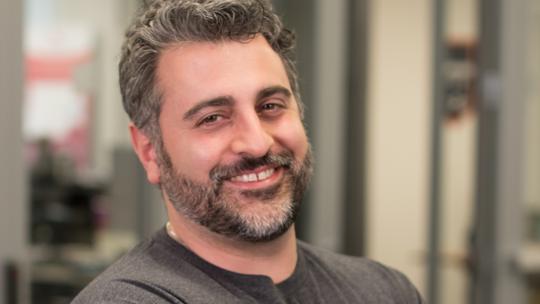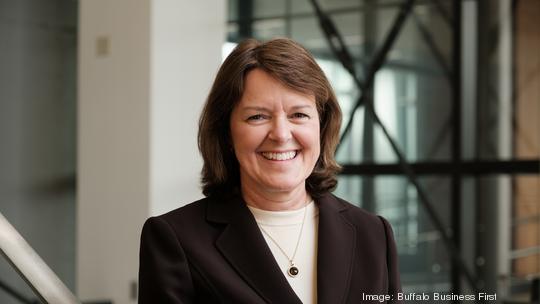
Storm clouds are looming on the horizon in high-growth technology scenes across North America.
The trend – formalized recently in The New York Times and TechCrunch, among other places – is a result of global factors that include the war in Ukraine, inflation in the U.S. economy, and the government's response to it and the plunging stock market.
Local investors say the trends will most heavily affect large venture capital funds and companies preparing to go public – in other words, not so much Buffalo.
But there are still tangible concerns in Western New York:
The tumbling stock market is hammering individual investors who are a crucial source of financial support for startups.
Founders of high-growth tech firms are suddenly fundraising in a world with different priorities.

Jack Greco, the ACV Auctions co-founder, angel investor and contributor to numerous formal venture capital funds, said sophisticated startup investment entities pin their valuations on the public markets, a process that's impossible in the context of such instability. They have responded by pulling back almost entirely – a move that could last anywhere from a few months to a few years.
Angel investors, in the meantime, are affected in a different way. As they watch their investment portfolios shrink considerably, they’re much less likely to write a $25,000 check to a startup.
The message to founders, Greco says, is to raise money based on your business fundamentals.
“The time when you could raise money without validation or proof of being a fundamentally sound business is gone,” he said. “You need to be able to prove financial solvency.”
And to secure investments, at fair terms, now.
“I’m going to people who have already raised money this year and telling them to extend the round, at an appropriate valuation, even if you’ve grown,” he said. “The focus has changed from how much is my company worth to what does my balance sheet represent, in terms of the lifeline I have.”

Marnie LaVigne, president and CEO of Launch NY, runs a nonprofit with several different investment vehicles, including an “Investor Network” of accredited investors who consider supporting startups on a deal-by-deal basis.
LaVigne said Launch NY has been actively working through its network to talk about their experience. While angel investing sometimes has a reputation of being a whim or a hobby, LaVigne said, it’s been important to educate people on its function in their investment portfolio.
“We’re seeing some skittishness, but we’re using this as an opportunity to educate them on the proper budget perspective and what it takes to be an angel in the first place,” she said.
What it takes: a long-term plan that involves a predetermined amount of money to invest in startups.
“That creates a much more comfortable angel investing experience, so you don’t feel like you’re out on a limb or reacting to something you see on the news,” LaVigne said. “You have to consider your overarching reason for investing and ask yourself what you care about.”

David Brown runs Rochester-based Impellent Ventures, which has invested in Buffalo startups 3AM Innovations, Kickfurther and Ognomy.
He said the changes from his perspective aren’t abrupt but the shift is real. Rounds are expected to take longer to close, which means companies will seek bigger raises to ensure a longer financial runway. Valuations are down but “not massively,” he said.
Perhaps the biggest change is how companies must present themselves.
“A traditional Series A or Series B round is based on traction and not necessarily core profitability,” he said. “That conversation going forward is going to be about their capacity to turn a profit.”
The IPO market drying up doesn’t have an immediate tangible impact on central and western New York, where go-public events are few and far between.
But that is a major long-term consideration for any tech startup. Getting to that point – surviving, in other words – may take longer.
“Without that public market exit, people are going to have to stay private for another five years before the next IPO window opens,” Brown said. “That could be five years away, so you have to survive for a good acquisition or until the market frees up to go public again.”







